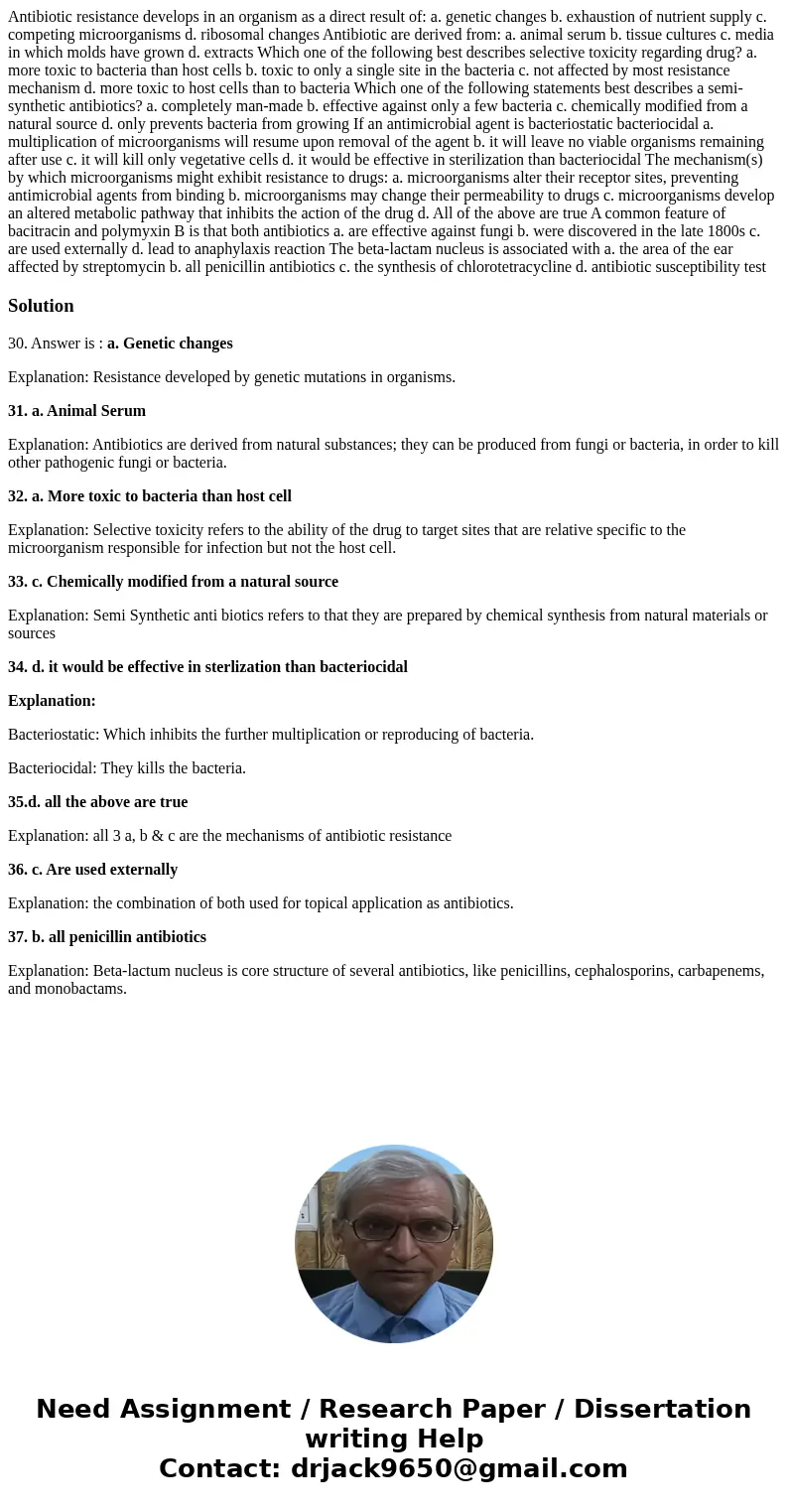Antibiotic resistance develops in an organism as a direct result of: a. genetic changes b. exhaustion of nutrient supply c. competing microorganisms d. ribosomal changes Antibiotic are derived from: a. animal serum b. tissue cultures c. media in which molds have grown d. extracts Which one of the following best describes selective toxicity regarding drug? a. more toxic to bacteria than host cells b. toxic to only a single site in the bacteria c. not affected by most resistance mechanism d. more toxic to host cells than to bacteria Which one of the following statements best describes a semi-synthetic antibiotics? a. completely man-made b. effective against only a few bacteria c. chemically modified from a natural source d. only prevents bacteria from growing If an antimicrobial agent is bacteriostatic bacteriocidal a. multiplication of microorganisms will resume upon removal of the agent b. it will leave no viable organisms remaining after use c. it will kill only vegetative cells d. it would be effective in sterilization than bacteriocidal The mechanism(s) by which microorganisms might exhibit resistance to drugs: a. microorganisms alter their receptor sites, preventing antimicrobial agents from binding b. microorganisms may change their permeability to drugs c. microorganisms develop an altered metabolic pathway that inhibits the action of the drug d. All of the above are true A common feature of bacitracin and polymyxin B is that both antibiotics a. are effective against fungi b. were discovered in the late 1800s c. are used externally d. lead to anaphylaxis reaction The beta-lactam nucleus is associated with a. the area of the ear affected by streptomycin b. all penicillin antibiotics c. the synthesis of chlorotetracycline d. antibiotic susceptibility test
30. Answer is : a. Genetic changes
Explanation: Resistance developed by genetic mutations in organisms.
31. a. Animal Serum
Explanation: Antibiotics are derived from natural substances; they can be produced from fungi or bacteria, in order to kill other pathogenic fungi or bacteria.
32. a. More toxic to bacteria than host cell
Explanation: Selective toxicity refers to the ability of the drug to target sites that are relative specific to the microorganism responsible for infection but not the host cell.
33. c. Chemically modified from a natural source
Explanation: Semi Synthetic anti biotics refers to that they are prepared by chemical synthesis from natural materials or sources
34. d. it would be effective in sterlization than bacteriocidal
Explanation:
Bacteriostatic: Which inhibits the further multiplication or reproducing of bacteria.
Bacteriocidal: They kills the bacteria.
35.d. all the above are true
Explanation: all 3 a, b & c are the mechanisms of antibiotic resistance
36. c. Are used externally
Explanation: the combination of both used for topical application as antibiotics.
37. b. all penicillin antibiotics
Explanation: Beta-lactum nucleus is core structure of several antibiotics, like penicillins, cephalosporins, carbapenems, and monobactams.

 Homework Sourse
Homework Sourse